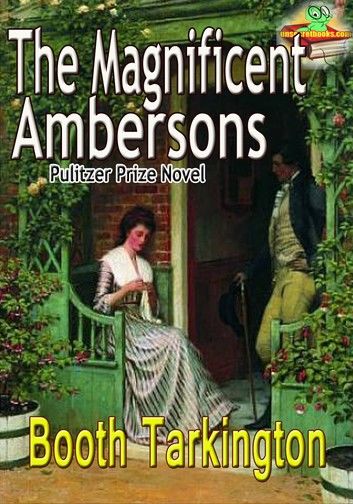| FindBook |
有 1 項符合
The Magnificent Ambersons: Pulitzer Prize Winning Novel的圖書 |
 |
The Magnificent Ambersons: Pulitzer Prize Winning Novel 作者:Booth Tarkington 出版社:Unsecretbooks.com 出版日期:2014-03-02 語言:英文 |
| 圖書館借閱 |
| 國家圖書館 | 全國圖書書目資訊網 | 國立公共資訊圖書館 | 電子書服務平台 | MetaCat 跨館整合查詢 |
| 臺北市立圖書館 | 新北市立圖書館 | 基隆市公共圖書館 | 桃園市立圖書館 | 新竹縣公共圖書館 |
| 苗栗縣立圖書館 | 臺中市立圖書館 | 彰化縣公共圖書館 | 南投縣文化局 | 雲林縣公共圖書館 |
| 嘉義縣圖書館 | 臺南市立圖書館 | 高雄市立圖書館 | 屏東縣公共圖書館 | 宜蘭縣公共圖書館 |
| 花蓮縣文化局 | 臺東縣文化處 |
|
|
The Magnificent Ambersons is a 1918 novel by Booth Tarkington which won the 1919 Pulitzer Prize for the novel. It was the second novel in his Growth trilogy, which included The Turmoil (1915) and The Midlander (1923, retitled National Avenue in 1927). In 1925 the novel was first adapted for film under the title Pampered Youth. In 1942 Orson Welles wrote and directed an acclaimed film adaptation of the book. Welles's original screenplay was the basis of a 2002 TV movie produced by the A&E Network.
The novel and trilogy trace the growth of the United States through the declining fortunes of three generations of the aristocratic Amberson family in an upper-scale Indianapolis neighborhood, between the end of the Civil War and the early part of the 20th century, a period of rapid industrialization and socio-economic change in America. The decline of the Ambersons is contrasted with the rising fortunes of industrial tycoons and other new-money families, who derived power not from family names but by "doing things." As George Amberson's friend (name unspecified) says, "don't you think being things is 'rahthuh bettuh' than doing things?"
|










